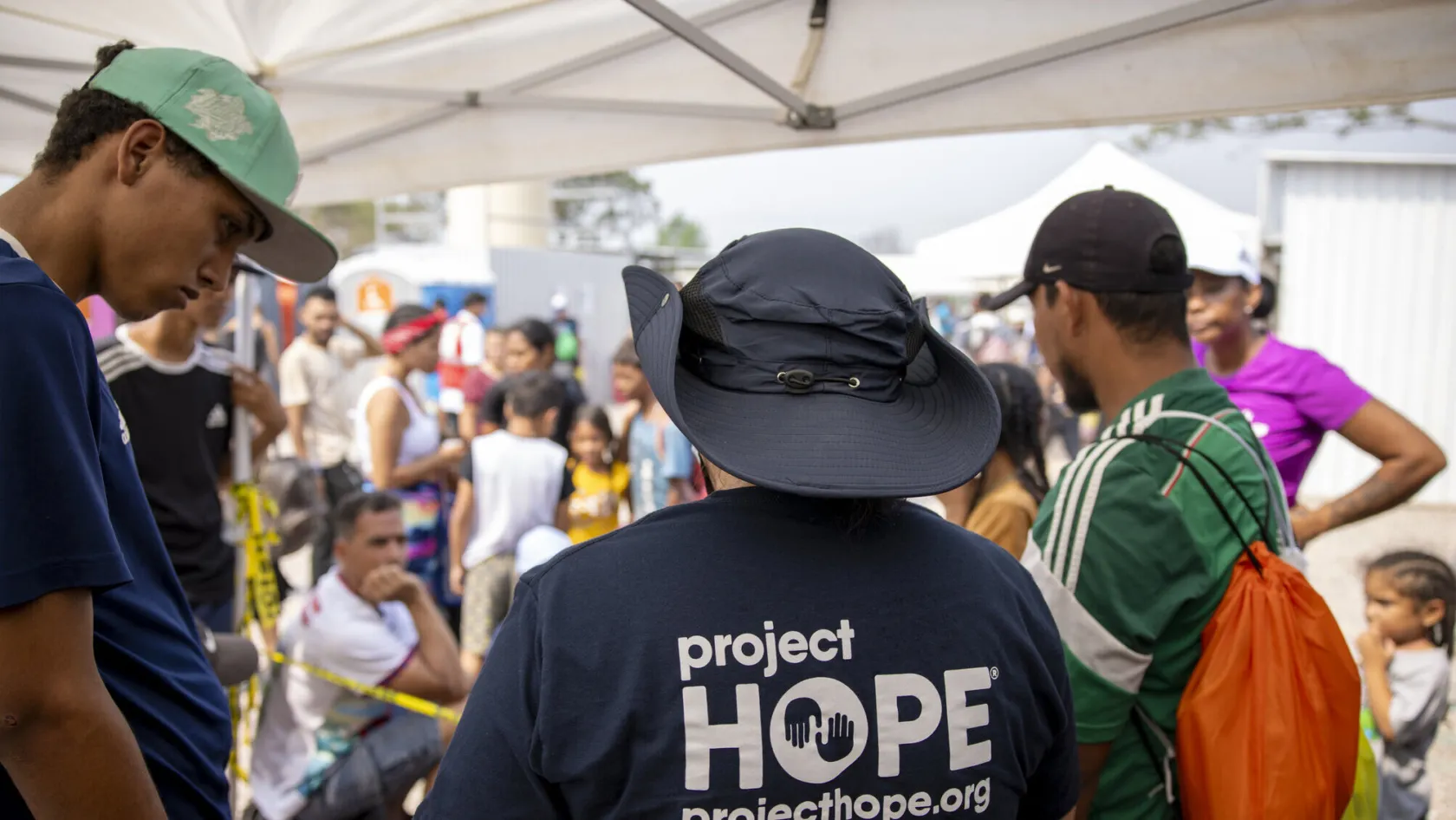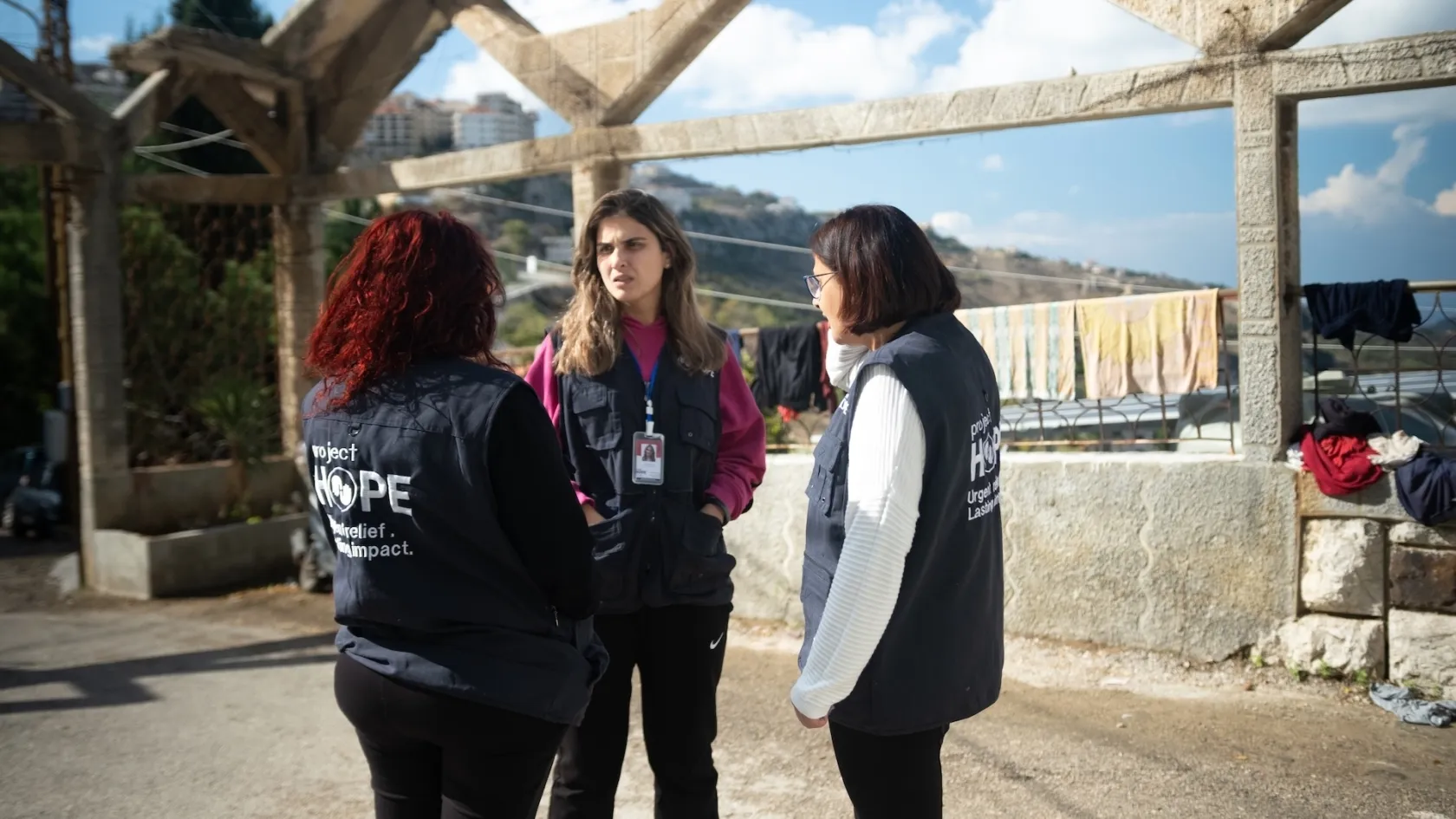Migrants Face an Ongoing Health Crisis While Making the Journey Through Latin America
Families of migrants cross thousands of miles on foot in hopes of a better future

Latin America and the Caribbean is experiencing the largest migration crisis in the world outside of conflict areas. Nearly 25 million people are projected to be displaced within the region in 2024. The routes they face can be uncertain and dangerous. Families can be split up, and sometimes young women and children are left doing the journey alone. In 2023, an estimated half a million migrants and refugees crossed the Darién Gap, a dangerous stretch of jungle terrain that connects Colombia with Central America.
In response to the urgent humanitarian crisis, Project HOPE has established migrant health programs near border crossings in Colombia, Ecuador, and Honduras. PH’s teams based in each of these countries are working daily to ensure that migrants have access to medical consultations, medications, mental health services, hygiene kits, and referrals to other services.
Adib Fletcher, Project HOPE’s Director for Latin America and the Caribbean, said:
“Many people make the decision to leave their country because they are left with no other option — it is forced displacement. People are fleeing violence and armed conflict, humanitarian collapse, and climate change — all of which impact access to fundamental human needs and the ability to survive. No one chooses to leave their home willingly, and displaced people are taking dangerous journeys where they are faced with a variety of health and safety concerns. Some families have taken the treacherous route through the Darién Gap, which is now closed as of July 1st of this year, but has not stopped the urgent health needs facing millions of migrants. In Latin America and the Caribbean, most migration occurs within the region, but a smaller percentage is on their way north to request asylum from persecution or to reunite with family in a safe and stable environment. Migrants deserve access to basic human rights, and Project HOPE is committed to providing the care they need.”
Manuel* is a migrant from Caracas, Venezuela. He has been traveling for three months with a group across Venezuela, Colombia, and Ecuador. Manuel has a disability due to an accident in Venezuela, making the three-month journey on foot especially taxing on his health. He said:
“There are eight of us walking and we help each other out. In Venezuela, we had a hard time finding employment, and I have a disability since I fell from a ladder and broke my leg. I came to Ecuador to see if I can find work and make money to buy a prosthetic. That way, I can better fit in and work and do things. We have spent many nights sleeping outside along the way. In Ecuador, we hope to find work, stability, and safety. Our journey has been tough, but we do it all for a better tomorrow.”
Michel* is a teacher from Port-au-Prince, Haiti, who is migrating to Mexico in hopes of finding work and safety from the violence in his country. He journeyed from Chile up through South America, across the Darién Gap, and through Central America on his way to Mexico. He said:
“We, Haitians, are leaving our country because the situation is getting worse. This is why we leave our country to go abroad, to live better. People are dying, even children. And every day, when I think about it, it gets to me a little because I have all my family living there. It is extremely dangerous. All my close family members are in Haiti. If I have the financial means, I will pay for my family and my granddaughter to go to Mexico in order to live better.”
Dr. Viviana Santos is a doctor working with Project HOPE in charge of overseeing the deployment of activities in Danli, Honduras. She said:
“I lead a team of doctors, nurses, nutritionists, and psychologists who provide essential primary care to migrants transiting through Honduras. My team is motivated to provide care to migrants because they are in a situation that could happen to anyone, and it’s an opportunity to be kind. Imagine if you came from Venezuela to cross the Darién Gap and the forest, putting your life on the line and the relief you feel when you get to Honduras and you see a doctor ready to treat you. We are here treating mental health too because people who are suffering not just from their sore feet or their empty stomachs — it’s from the soul.”
Project HOPE has a long history of addressing the health needs of displaced people around the world, including providing maternal and child health care along the Colombia-Venezuela border; providing primary health services to internally displaced people in places like Ethiopia, Gaza, and Ukraine; and partnering with free and charitable clinics in Texas, Louisiana, Alabama, Georgia, and Florida that support refugee and vulnerable communities.
Photos for media use are available here. For media inquiries, contact aviscarri@projecthope.org (WhatsApp: +1 281-889-8594) or media@projecthope.org
###



